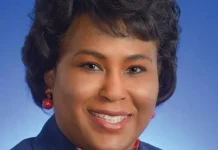As Florida Coronavirus Cases Surge, Spring Breakers Express Regret
Spring breakers are now expressing regret they went, but some say the government wasn’t clear enough in its message to practice social distancing.
Now, as the United States is at about 55,000 cases of the coronavirus, including more than 780 deaths, and is on track to become the new center of the pandemic, he has revised his message: “Don’t be arrogant and think you’re invincible like me.”
On Monday, Sluder posted a lengthy apology on his Instagram, first reported by The Cincinnati Enquirer, in which he said he “wasn’t aware of the severity of my actions.”
Of course, Sluder, 22, of Milford, Ohio, has elderly people in his life whom he “adores.” He didn’t want to put anyone at risk. Now, he understands how serious the virus is and is encouraging people to follow the guidelines on how to stay safe and reduce risk. Most of all, he’s sorry.
Sluder’s apology comes as more and more people are focusing their attention on how young people are responding to the virus, with the term “COVIDIOT” being used to describe some actions, especially since the news broke that at least six University of Tampa students tested positive after returning from spring break.
After initial reports that young people are largely unaffected by the disease, it’s increasingly clear that they only are not affected by the virus but also can get very sick from it — even fatally so. It leaves many wondering: Are spring breakers like Sluder to blame for their previous blasé attitude, or is it more the fault of governments for not communicating the severity of the situation?
David Anzarouth, who is recovering from COVID-19, the disease caused by the coronavirus, went to Miami in early March for vacation. Ten days later, the 25-year-old from Toronto was in a hospital emergency room with the virus, feeling “the most incredible pain that I’ve ever experienced,” according to the Canadian Broadcasting Corporation.
Anzarouth, who declined to comment further to NBC News but said through a spokesperson that he is feeling “well,” said he regrets going.
The coronavirus, he said, was “definitely on everybody’s mind but … at the time, we thought, ‘Let’s not lose all this money.’ I myself have been needing a vacation.”
“There’s no one to blame. … I understand that I put myself into a place where I risked my health,” he told the CBC.
But Molly, a student at the University of Pittsburgh who asked that only her first name be used, thinks it’s more complicated than that.
Like Sluder, Molly went to Florida two weeks ago on spring break. When she left, nobody she knew was talking about the virus. Then, on March 13, while she was in Florida, a national emergency was declared.
“My friends and I all freaked out,” said Molly, 22. They decided to be “low-key” for the rest of the trip, avoiding clubs and crowded sections of the beach. Scheduled to go home the next day, Molly felt like a day or two wouldn’t make a difference and didn’t have the extra money to book a last-minute flight.
Now, she has second thoughts about the whole trip as cases in Florida continue to rise.
Molly feels fine, but she lives with her sister who works with the public and is worried about being an asymptomatic carrier.
She saw Sluder’s video and said she has “a lot of feelings about it.” She felt it was “really ignorant and selfish,” but she said, “Most people are ignorant and selfish, especially at, like, 18 to 22 years old.”
“At the time of the video, I don’t think most people were considering the gravity of a pandemic, and I think that needs to be taken into account before we shame and ridicule these people,” Molly said. Instead, they were probably thinking about the money they’d sunk into the trip and the break they’d been looking forward to for weeks or months, she said.
Michael Arceneaux took Molly’s point one step further in his piece for NBC News THINK, titled “Young people didn’t social distance because the government kept telling them not to worry.”
Arceneaux said he “joined the nation in the booing and hissing” after watching clips of people like Sluder continuing to party on spring break, but he says they are not to blame.
“The disease is spreading because the people in power — largely old white men — have failed the nation by not properly preparing for its effects in spite of dire warnings,” he wrote.
Florida came under sharp criticism for its refusal to close its beaches as other states were shutting down nonessential businesses. If public health officials and governors weren’t telling students to stay off the beaches, why should people have known better?
At that point, Arceneaux argued, leaders had “given them no real reason to give a damn.”
Still, Abbey Acolia, 19, a college student in New Jersey, thinks the students in Florida could’ve shown more restraint. Her spring break on the Jersey Shore was more low-key because she and her friends tried to stay inside the house they rented.
“We made the best of that,” Acolia said.
Acolia and her friends left the house sometimes, but she said that whenever they did, it was so deserted it felt “eerie.” She was unhappy when she saw the video of the spring breakers on the beach and felt like they were being foolish.
“They didn’t seem to care,” she said.





